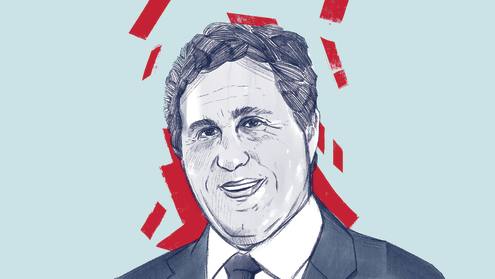The Central Bank of Bosnia-Herzegovina (CBBH) established the country’s payment systems 22 years ago. These systems have a high level of operational reliability and stability for the smooth movement of financial flows within Bosnia-Herzegovina’s economy.
Reliable and stable payment systems are significant factors in the financial stability of the economy they serve, which is manifested through the influence on fiscal and monetary system stability, the building of trust in the national currency, and the strengthening of liquidity and market potential.
Taking these factors into account, the CBBH carries out continuous activities to preserve the stability of the existing systems, improve them and to build new systems, with the aim of making the country’s economic and financial system more efficient.
When it comes to payment systems, the CBBH Law defines the role of the central bank in such a way as establishing and maintaining appropriate payment and accounting systems. Adhering to its mandate and the obligations arising from it, the CBBH has successfully established, in a very short space of time, a real-time gross settlement payment system, as well as the Gyro clearing system for small payments up to Km10bn ($5.5bn).
The process of establishing the payment systems required a complete transformation of transactions in Bosnia-Herzegovina, enabling banks to perform this function, instead of the previous three payment bureaus. Thus, the CBBH, as the operator of the two payment systems, has become the central point through which all interbank payment orders in convertible marks are processed, which represents another step in the harmonisation of the single economic area of Bosnia-Herzegovina.
Payment reforms pay dividends
There is no doubt that the purpose of the reform has been achieved and that there have been significant market changes, which are reflected in the faster and more efficient realisation of transactions among payment system participants, the reduction of payment transaction costs, the higher turnover ratio of money supply, and, ultimately, the enabling of digitalisation in this segment.
Acting as our partners for many years, the International Monetary Fund and the US Agency for International Development have given great support to the CBBH and the project of establishing payment systems, both with the transfer of know-how and financial support. In this way, they greatly contributed to the successful and rapid implementation of necessary activities.
Reliable and stable payment systems are significant factors in the financial stability of the economy they serve.
The number and value of transactions executed through the payment systems of the CBBH have grown continuously since 2001, when the annual number of transactions was 11.9 million. In 2022, the number reached 49.7 million transactions, more than four times higher. The total value of transactions carried out through the payment systems increased from $9.2bn in 2001 to $79.9bn in 2022. We are particularly proud of the fact that the severe natural disasters, such as the floods that hit Bosnia-Herzegovina in 2014, and the health crises, such as the Covid-19 pandemic, did not affect the payment systems functioning, and all transactions were processed during the system’s working hours.
Through its daily work, the CBBH creates the preconditions to maintain a high level of payment systems resilience, and undertakes all the necessary activities in order to meet the necessary standards and best practices.
Modernisation of payment systems is one of the current activities of the CBBH. The focus is on building a modern system for instant payments aligned with characteristics of the EU’s Target Instant Payment Settlement System, which aim to lower the costs of individual transactions, raising the level of financial inclusion and creating preconditions for connecting with the bloc’s payment infrastructures.
Greater integration with EU flows
Joining the Single Euro Payments Area (SEPA) and connecting with EU payment systems is of essential importance for the development of payment systems, and for the economy of Bosnia-Herzegovina. The CBBH continuously prepares and constructs the necessary infrastructure for the realisation of the European path when it comes to joining SEPA.
The CBBH will focus on these activities with the aim of faster fulfilment of the necessary criteria. The central bank has already taken a pioneering step along this path, with the Gyro clearing system being aligned with the SEPA credit transfer standard in 2019. The hope is for faster integration of the payment systems of the CBBH with EU flows.
The focus is on ensuring the safety, efficiency and effectiveness of payment settlements, and assessing the compliance and harmonisation of payment systems with international principles related to the infrastructure of financial markets, as well as the requirements of the European Central Bank (ECB).
In parallel with the activities related to the maintenance of existing payment infrastructures and the development of new ones, the CBBH is also raising awareness about cashless payments and actively carrying out financial education of the population.
We conducted research with banks as providers of payment services in Bosnia-Herzegovina, which found that 66% of bank clients who have an activated mobile banking service do not use the service at all. In order to raise awareness of the advantages of digital payments, the CBBH, in co-operation with the World Bank, issued a guide for digital payments. The digitalisation of services requires the education of users, so that they can safely use modern payment services.
The CBBH continues to maintain the efficient and stable running of existing payment infrastructures while developing new ones, and will harmonise them with the guidelines and standards for financial market infrastructures as set out by the Bank for International Settlements and the ECB.
Earning public trust
In order to support the operations of payment systems, as well as other obligations and powers, the CBBH established and manages the Single Registry of Accounts of Business Entities in Bosnia-Herzegovina. In addition to supporting the operations of payment systems, the registry helps banks, tax authorities, the police and other levels of government detect financial structures and transactions that companies and individuals can use for money-laundering and tax evasion, and other activities that are contrary to the laws of Bosnia-Herzegovina.
The registry also provides insight into information regarding all legal and natural persons seeking payment of their claims by the authorised enforcement institutions. The CBBH has created the technical prerequisites for the establishment of the single registry.
In support of financial stability, the CBBH has been actively running the registry in Bosnia-Herzegovina for many years. Data from the registry is available not only to credit institutions, but also to judicial and police authorities.
And finally, our vision is to be recognised as a highly professional, independent, transparent, credible, and innovative institution that enjoys the trust of the public, and whose actions will be essential for the monetary, financial and economic stability of the state of Bosnia-Herzegovina.
Senad Softić is governor of the Central Bank of Bosnia-Herzegovina.












